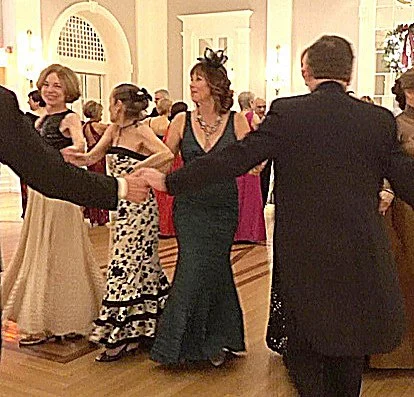
- 1 - The History of Waltz
- 2 - Why Waltz Is Popular for Seniors
- 3 - Physical and Mental Health Benefits of Waltz for Seniors
- 4 - How to Get Started with Waltz
- 5 - Real-Life Stories of Seniors Enjoying Waltz
- 6 - Finding the Right Dance School for Seniors
1. The History of Waltz
The waltz is one of the oldest and most beloved ballroom dances, with its roots tracing back to 18th-century Europe. Initially, the waltz was considered a controversial and scandalous dance because it involved partners dancing in a close embrace, a break from the more formal dances of the time. However, as it gained popularity, the waltz became a symbol of elegance and sophistication in social circles across Europe and beyond.
By the 19th century, the waltz had spread across the globe, becoming a staple of formal events and grand balls. In the early 20th century, as modern ballroom dancing evolved, the waltz remained a key dance in both social and competitive dancing. Today, the waltz continues to be enjoyed by people of all ages, including seniors, thanks to its graceful movements and low-impact nature.
2. Why Waltz Is Popular for Seniors
The waltz is a popular dance choice for seniors for several reasons. It provides a perfect blend of physical activity, social interaction, and emotional well-being, all of which are important as we age.
2.1 Low-Impact Exercise
Unlike high-impact exercises such as running or aerobics, the waltz offers a low-impact workout that is easy on the joints while still providing significant cardiovascular benefits. This makes it an ideal choice for older adults who may have concerns about joint health but still want to stay active and improve their fitness levels.
2.2 Improves Balance and Coordination
The waltz involves a series of smooth, flowing steps that help improve balance and coordination. As seniors age, balance can become a concern, and dancing is an excellent way to maintain stability and reduce the risk of falls. The waltz’s emphasis on controlled movement and posture strengthens core muscles, contributing to better overall balance.
2.3 Social Engagement and Enjoyment
Waltzing isn’t just good for physical health – it’s also great for emotional well-being. Dance classes often provide a social environment where seniors can connect with others, making new friends and enjoying the camaraderie of group activities. The joy and fun of dancing with a partner or in a group setting foster a sense of belonging and can reduce feelings of loneliness or isolation.
3. Physical and Mental Health Benefits of Waltz for Seniors
The physical and mental health benefits of waltzing go hand in hand, offering seniors a comprehensive way to improve their quality of life.
3.1 Physical Health Benefits
Waltzing provides a full-body workout that improves flexibility, muscle tone, and cardiovascular fitness. The rhythm and flow of the dance help enhance heart health while keeping the body in motion without putting too much strain on the joints. It also promotes improved posture and mobility, which are key factors in maintaining independence as we age.
3.2 Mental and Emotional Well-being
In addition to the physical benefits, waltzing can have a profound impact on mental and emotional health. Dancing has been shown to reduce symptoms of depression, anxiety, and stress, offering a natural mood boost. The mental focus required to follow the dance steps and keep in sync with the music helps sharpen cognitive functions, keeping the mind active and engaged. For seniors, this can be a vital tool in maintaining mental acuity and emotional resilience.
4. How to Get Started with Waltz
If you’re a senior interested in learning how to waltz, getting started is easier than you might think. Here are a few tips to help you begin your waltz journey:
4.1 Find a Beginner Class
Many local dance studios and community centers offer beginner waltz classes specifically tailored for seniors. These classes are designed to introduce basic steps, build confidence, and improve coordination. The pace is slower, and instructors are experienced in working with older adults, making it a great starting point for newcomers.
4.2 Practice Regularly
Like any new skill, practice is key to improving your waltz. Try practicing at home between classes by listening to waltz music and moving to the beat. As you become more comfortable with the basic steps, you’ll find that you can dance with more fluidity and confidence.
4.3 Dance with a Partner
If possible, find a dance partner to practice with. Not only will this make the experience more enjoyable, but it will also help you become more comfortable with the lead-and-follow aspect of the waltz. Dancing with a partner helps you stay engaged and creates a more interactive experience.
5. Real-Life Stories of Seniors Enjoying Waltz
Many seniors have shared how waltzing has enhanced their lives. For example, Mary, a 68-year-old retiree, found that taking up waltz lessons helped her regain her balance and improve her overall fitness. She also enjoyed the social aspect of the classes, which gave her a renewed sense of purpose and joy.
Similarly, John and Susan, a couple in their 70s, began waltzing together after attending a local ballroom dance class. They found that the waltz not only helped them stay fit but also brought them closer as a couple. The gentle movements and graceful flow of the dance allowed them to reconnect and have fun together in a way that was both healthy and enjoyable.
6. Finding the Right Dance School for Seniors
Choosing the right dance school is an important step in starting your waltz journey. Look for a school that offers specialized classes for seniors, with instructors who are experienced in working with older adults. Ensure that the environment is welcoming, supportive, and paced appropriately for your skill level and comfort.
If you're looking for a reliable dance academy that offers waltz classes for seniors, visit American Dance Academy, where you can find the best classes, instructors, and resources to help you learn and enjoy the waltz.
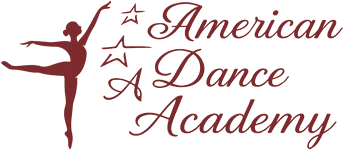

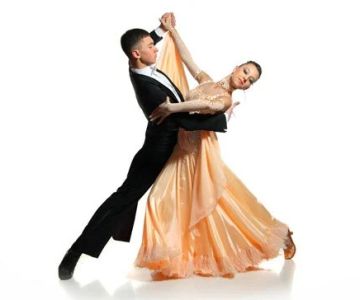
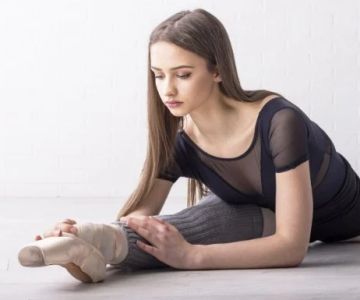
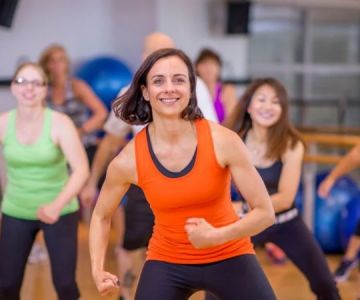

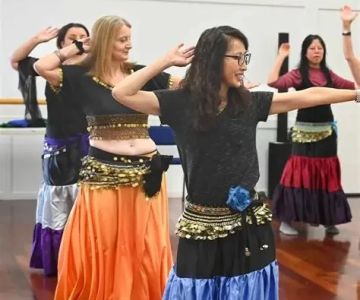
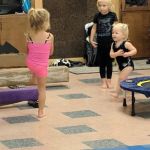 All That Dance & Gymnastics4.0 (3 reviews)
All That Dance & Gymnastics4.0 (3 reviews) California Conservatory of Performing Arts4.0 (6 reviews)
California Conservatory of Performing Arts4.0 (6 reviews) Music Together of Boulder5.0 (23 reviews)
Music Together of Boulder5.0 (23 reviews) Valley Ballet5.0 (5 reviews)
Valley Ballet5.0 (5 reviews)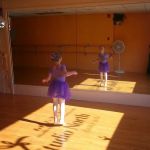 Studio North Dance Arts5.0 (3 reviews)
Studio North Dance Arts5.0 (3 reviews) PA DanceSport Ballroom4.0 (31 reviews)
PA DanceSport Ballroom4.0 (31 reviews)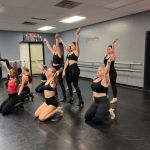 Why A Step in Time School of Dance Inspires Lifelong Passion
Why A Step in Time School of Dance Inspires Lifelong Passion Why K-Pop Dance Is Popular and How You Can Learn It
Why K-Pop Dance Is Popular and How You Can Learn It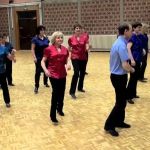 How to Master Line Dance for Beginners
How to Master Line Dance for Beginners Do 6th Graders Have School Dances? What Students & Parents Should Know
Do 6th Graders Have School Dances? What Students & Parents Should Know A School Dance Movie: Why These Stories Still Inspire
A School Dance Movie: Why These Stories Still Inspire The History of Belly Dance Every Dancer Should Know
The History of Belly Dance Every Dancer Should Know